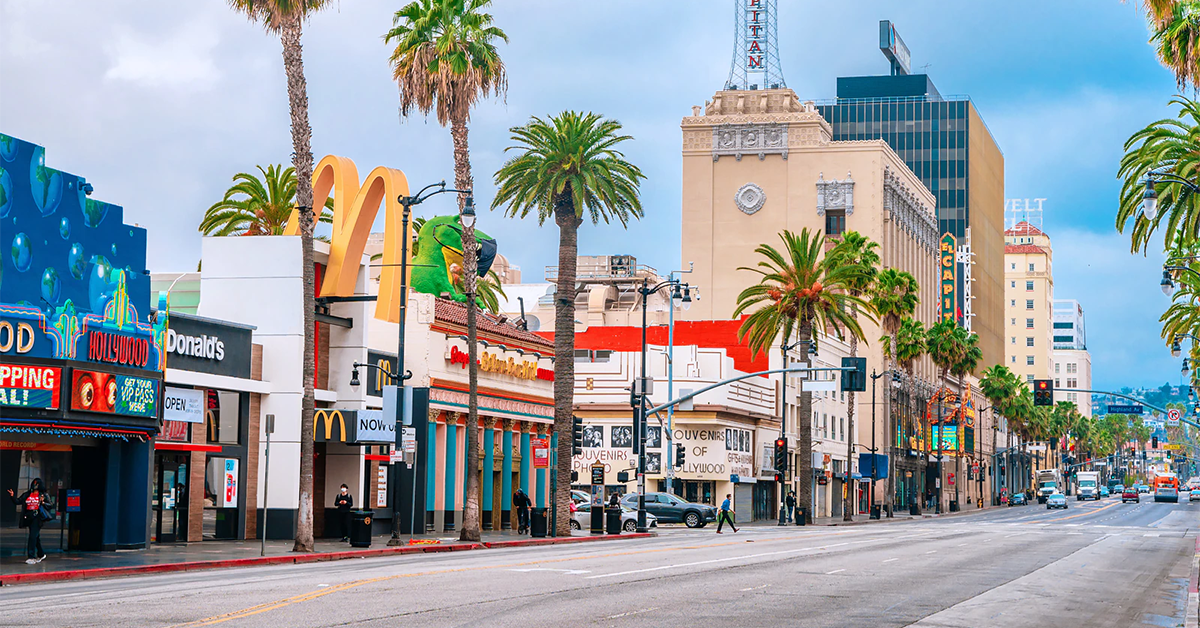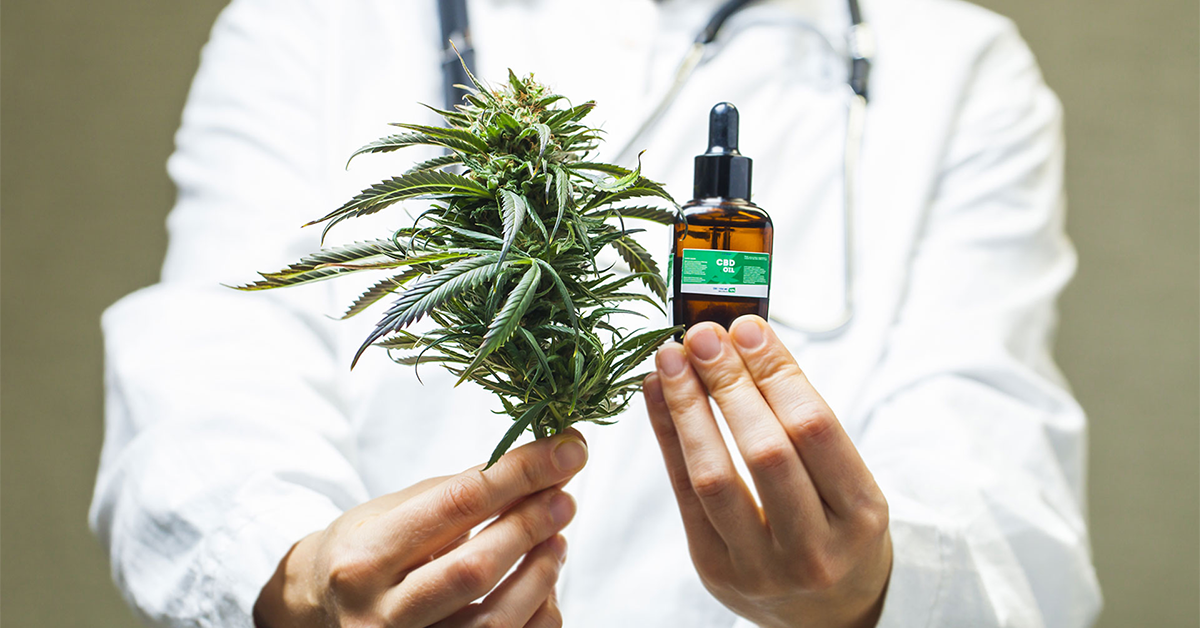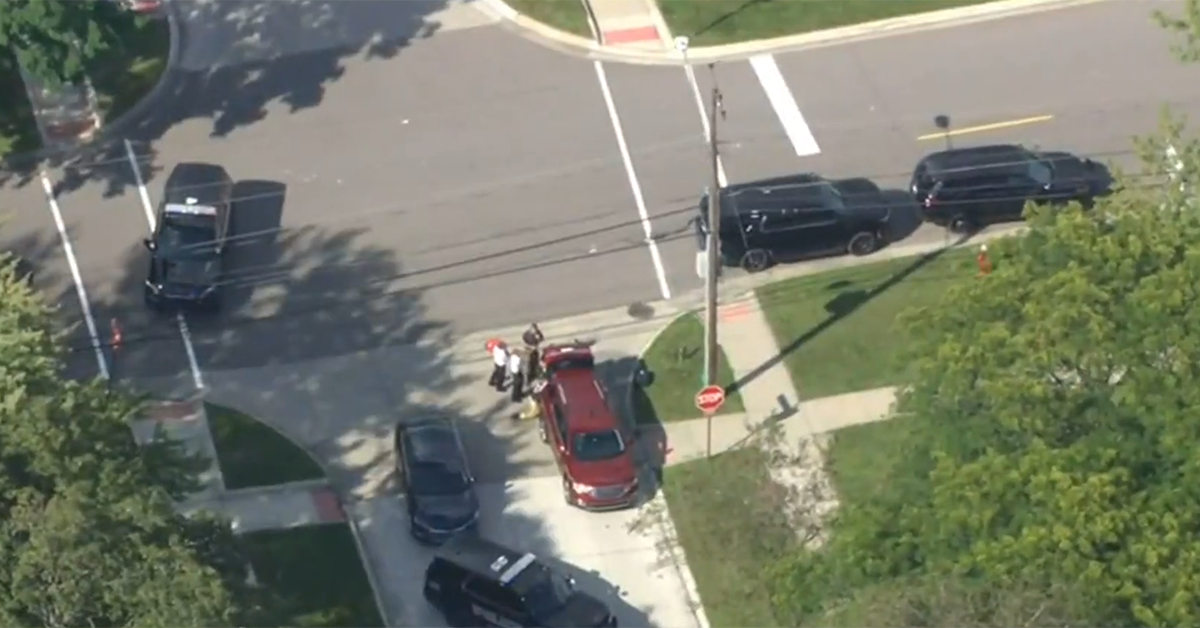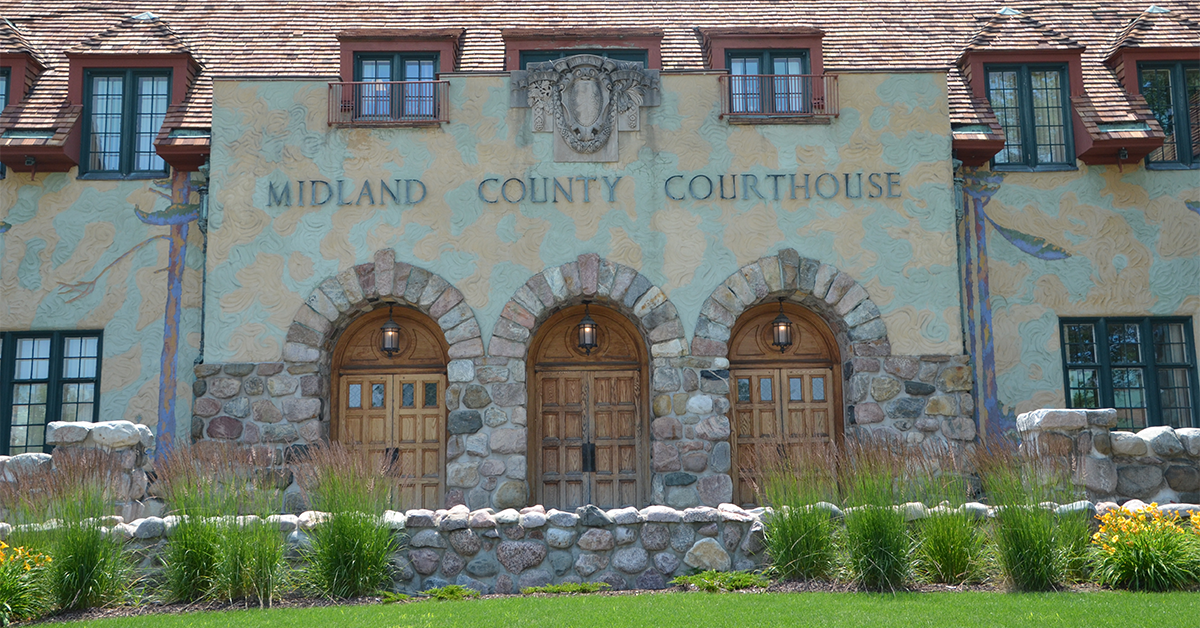Michigan vs. Los Angeles: A Comparative Analysis of Their Cannabis Economies

In the ever-evolving landscape of the U.S. cannabis industry, two prominent players stand out - Michigan and Los Angeles. Their journeys, although intertwined in the broader narrative of marijuana legalization, present distinct challenges and opportunities.
Legal Foundations of Cannabis Trade
Central to the vibrancy of the cannabis trade is the legal framework. Michigan welcomed legal cannabis for both medical and recreational purposes in 2018, following a public vote. The state prides itself on a structured regulatory system, ensuring organized operations from dispensaries to cultivators.
On the other hand, Los Angeles has been a key player in California's cannabis narrative. The state pioneered medical marijuana legalization in 1996 and expanded to recreational use by 2018. Yet, LA's labyrinthine local regulations, despite facilitating a rich marketplace, have often perplexed businesses and consumers.
Economic Impacts and Market Dynamics
In 2022, Michigan's cannabis trade soared, garnering sales of over $2 billion, as per the Michigan Marijuana Regulatory Agency. This underscores Michigan's unwavering appetite for cannabis products.
Contrastingly, Los Angeles, with its demographic advantage and early legalization, clocked a staggering $5.3 billion in cannabis sales in the same year. However, its industry faces fragmentation due to its competitive environment and intricate regulations.
The Spectrum of Industry Players
Michigan's cannabis industry is marked by an influx of small, locally-owned businesses, mirroring the entrepreneurial spirit in new cannabis markets.
Conversely, Los Angeles showcases a spectrum of players - from budding businesses to industry titans. While this spells fierce competition, it also raises eyebrows over potential corporate monopolization.
Tackling Challenges, Seizing Opportunities
Navigating the cannabis industry is no mean feat. Michigan's hurdles include equitable license distribution and environmental implications of cannabis farming. These reflect the teething problems of emerging cannabis economies.
Los Angeles grapples with its own set of challenges. A convoluted licensing procedure and an unchecked illegal market are primary concerns. Addressing these is crucial for a balanced industry catering to both entrepreneurs and consumers.
Yet, the horizon is bright. Both Michigan and Los Angeles are ripe for innovations in product design, user experience, and medicinal utility. Their potential to metamorphose into global cannabis epicenters is palpable.
Final Thoughts
Michigan and Los Angeles, while traversing their unique cannabis journeys, contribute significantly to the broader cannabis narrative. Michigan's orderly regulations and blossoming local enterprises hint at a promising, inclusive industry. Meanwhile, Los Angeles, with its monumental market presence, is poised to be a trendsetter in cannabis innovations.
The onward journey demands collaboration among policymakers, industry experts, and stakeholders. By addressing emerging challenges, Michigan and Los Angeles can maximize the socio-economic benefits of cannabis, ensuring their communities thrive in this green revolution.
Michigan Medical Marijuana Update: Bridging the Knowledge Gap

Michigan proudly stands as one of the 38 states that have embraced medical cannabis legalization. Yet, a 2021 Journal of Cannabis Research study revealed a startling statistic: only 18% of Michigan's medical marijuana patients rate their primary care physician's insight on the subject as "very good" or "excellent." Interestingly, the majority have communicated their cannabis usage to their doctors. But feedback on physician knowledge is varied, and a significant portion sought their medical cannabis licenses from external doctors.
Dr. Evan Litinas sheds light on this by stating, "A vast segment of consumers utilizes cannabis for holistic well-being. If patients feel a disconnect discussing cannabis with their doctors, they often approach local cannabis dispensaries, hoping a budtender might provide clarity."
He cautions, however, "While many dispensaries are top-notch in assisting consumers, there are instances where they fall short in disseminating accurate information about this potent medicinal herb. This disparity can create a chasm between the consumer's understanding and expectations of cannabis."
Dr. Litinas is collaborating with Local Roots Cannabis on 'Medical Mondays' throughout September and October. Every Monday, between noon and 4 p.m., he'll be at the dispensary, addressing queries on THC, CBD, and beyond. Though he won't be providing personalized medical counsel, he aims to offer a holistic understanding of cannabis's medicinal applications, from interpreting lab outcomes to elucidating cannabis's impact on specific ailments. Moreover, he wishes to instigate a dialogue among consumers and their primary physicians about cannabis.
With a career spanning over a decade in the medical marijuana realm, including contributions to cannabis research at the University of Michigan and a pivotal role as the chief medical officer for Ann Arbor dispensary Om of Medicine (now Mission Ann Arbor) till 2020, Dr. Litinas is passionate about edifying the masses on cannabis. His endeavors culminated in a harmonious alliance with Local Roots owners, Roy and Ronda Liskey. The synergy was palpable, as Dr. Litinas remarked, "The Liskeys are genuine community pillars. Our collaborative efforts will surely elevate cannabis education."
Roy Liskey acknowledged Dr. Litinas' commitment, stating, "Though there's no definitive promise that products will universally aid medical conditions, a plethora of research-backed evidence exists. Dr. Litinas' engagement is a boon to our community. We're indebted to his expertise and dedication."
Historic Big Rapids Building Gets New Life with Triad of Entertainment, Coffee, and Cannabis

Marc Robert, a local entrepreneur, has infused new life into the historic building at 120 S. Michigan Ave. above Shooter's Bar & Grill, offering a fusion of a marijuana dispensary, coffee hub, and an entertainment venue. Here's a deeper dive into this pioneering venture:
The Luckyspot Dispensary
Originally known as Lucky's, the space has been revamped and renamed to Luckyspot. This full-service marijuana dispensary partners with Roasted Insomniac, a coffee nook offering baked delicacies and diverse coffee blends.
Acacia Place - More Than Just a Venue
Replacing the historic Masonic Temple lodge, the newly christened Acacia Place is set to host events ranging from concerts and weddings to musicals and grand group gatherings. Robert's inspiration traces back to his student days at Ferris State University when he frequented this place for fraternity events. "The building's energy is palpable, and it has a rich history. It's where the first two Ferris State University class graduations took place. We aim to preserve and celebrate this legacy," remarked Robert.
Roasted Insomniac – A Retro Coffee Corner: Positioned to serve the visitors of the dispensary, this cafe will offer an array of baked goods and coffee. An additional nostalgic touch? A TV hooked up to 10,000 retro games.
Upcoming Events and Offers: Acacia Place is all set to host rapper Sada Baby on October 21st at 8 p.m. General admission tickets are priced at $99, and VIP tickets, offering a sound check and meet & greet, come at $149. Ticket holders also get tempting offers on cannabis products and accessories.
The dispensary will have its grand opening at 9 a.m. on September 25th, with deals and top-shelf brands awaiting customers.
Community & Collaboration
With a seating capacity of 225, which Robert hopes to expand soon, the venue aims to integrate with Ferris State University and the local music scene. Plans for student internships to manage the venue are also on the horizon. Robert is keen on contributing to local initiatives, supporting entities like Muskegon State Park, the Muskegon Humane Society, and Ferris State University, among others.
"My primary goal is to enrich Big Rapids' culture," Robert expressed. "Culture intertwines with music, art, entertainment, and community. I hope to pass down a vibrant community space to future generations."
For details on the Luckyspot, check out luckyspotusa.com. To stay updated on events and availability at Acacia Place, head over to acaciaplacelive.com.
Four Teens Arrested for Shooting Marijuana Dealer in Warren

In an alarming incident highlighting the dangers surrounding the underground marijuana trade, four teenagers have been detained in connection with a shooting near a Warren school.
On September 14th, Warren police were dispatched to the crossroads of Martin and Bunert after reports of gunfire. Upon arrival, officers discovered a man in a vehicle, riddled with bullets. The unfolding situation prompted immediate lockdowns at both Macomb Community College and Warren Woods Tower High School.
Preliminary investigations suggest that the shooting stemmed from a botched robbery. The 26-year-old victim from Roseville, who is currently fighting for his life after multiple surgeries, was reportedly involved in local cannabis dealings. Authorities believe his connection to the marijuana trade played a significant role in making him a target. As of now, the man faces a grim prognosis of possible paralysis due to the injuries sustained.
On the subsequent Monday, four teenagers – two aged 14 and two aged 15 – were apprehended at Warren Woods Tower High School. Of the four, three hail from Warren, while the fourth is an Oak Park resident. That same day, law enforcement also carried out searches at three Warren homes and an Oak Park residence, unearthing five firearms. It's speculated that two of these weapons are connected to the shooting incident.
Macomb County's Juvenile Chief, on Tuesday, allowed the Macomb County Prosecutor's Office Juvenile Unit additional time to deliberate on charges and to decide if the teenagers should be prosecuted as adults.
The proposed charges against the adolescents include armed robbery, assault with intent to murder, conspiracy, and multiple weapons offenses.
Macomb County Prosecutor, Peter Lucido, commented on the gravity of the situation, stating, "These young individuals have cast a spotlight on the consequences of our life choices. Not only do these decisions mold our destinies, but they also shape the security of our neighborhoods. Our commitment remains unwavering in pursuing the truth, ensuring those at fault face the repercussions, and delivering justice for the victim and our society."
A preliminary hearing for the teens has been scheduled for September 25th.
Preliminary Hearings Adjourned for Suspects in Coleman Marijuana Grow House Case

Hearings for five out of the six men accused in the July 16th break-in at a Coleman marijuana grow house have been postponed. One of the suspects, Addiel Torres, 49, was shot during the alleged burglary. The hearings, originally scheduled for September 18th in Midland County District Court, will be rescheduled due to the number of defendants and a language barrier. Midland County Prosecutor J. Dee Brooks anticipates needing up to eight interpreters over the five-day hearing duration.
The suspects include:
- Addiel Torres, 49 (shot during the incident)
- Roberto Padron-Alvarez, 44 (the only fluent English speaker among the five)
- Yoany Alvarez-Antuna, 40
- Yuan Biart-Gonzalez, 38
- Jorge Acosta, 56
All are slated to appear in district court for their preliminary hearings.
Meanwhile, Andy Gomez-Niebla, 37, has waived his preliminary hearing and will have a final pretrial conference at 8:30 a.m. on October 24th in Midland County Circuit Court.
Charges include:
- Torres is accused of multiple charges, including assault with intent to murder and is held on a $3 million bond.
- Biart-Gonzalez faces charges like conspiracy to commit breaking and entering and is in the Midland County Jail on a $2 million bond.
- Niebla, Padron-Alvarez, Alvarez-Antuna, and Acosta each face four felony charges and are held on $1 million bonds.
The origins of some suspects trace back to Michigan, while others reportedly hail from Florida and Colorado. Determining the true identity of some has been challenging due to their use of aliases.
The incident on July 16th saw a response from Midland County Sheriff's deputies after reports of a break-in with shots fired. Torres was reportedly shot by a resident. Sheriff Myron Greene acknowledged the collaborative efforts of multiple law enforcement agencies in apprehending all six men swiftly.
Cannabis Celebrated at Breakaway Music Festival in Michigan

Michigan's legalization of cannabis has found its way to the festival scene, and Breakaway Music Festival is leading the charge.
Travelling across five states every summer, Breakaway Music Festival graces cities from coast to coast, featuring acts like Zedd, GRiZ, Flume, and many others. Its Grand Rapids stop at Belknap Park on August 18-19 was an electrifying edition, with stellar performances from top artists such as deadmau5, RL Grime, Porter Robinson, and Tiësto. Robinson's ethereal set stood out, a mesmerizing blend of new tunes and beloved classics. Meanwhile, Tiësto's remix of Lana Del Rey's "Say Yes To Heaven" ignited the crowd into a frenzy.
But the real buzz? The festival's embrace of the cannabis culture. JARS Cannabis was the primary sponsor, with other local cannabis businesses such as Ascend Dispensaries, Cloud Cannabis, and House of Dank making their presence felt. Festival-goers were treated to a plethora of freebies, from pre-roll coupons to THC-related merchandise. It was a unique scene, a nod to the shifting perception of cannabis. However, a call for more educational information about THC and CBD's benefits was noted.

The festival had its challenges. The crowd's energy was a mix, with some attendees seeming new to festival etiquette, making for some disruptions. However, the overall experience remained positive.
Living at the intersection of music and marijuana advocacy, I commend Breakaway for joining festivals like Northern Nights and Outside Lands in championing cannabis. It's thrilling to see festivals embrace cannabis culture as legalization and normalization continue across the U.S.


 Helpful Links
Helpful Links